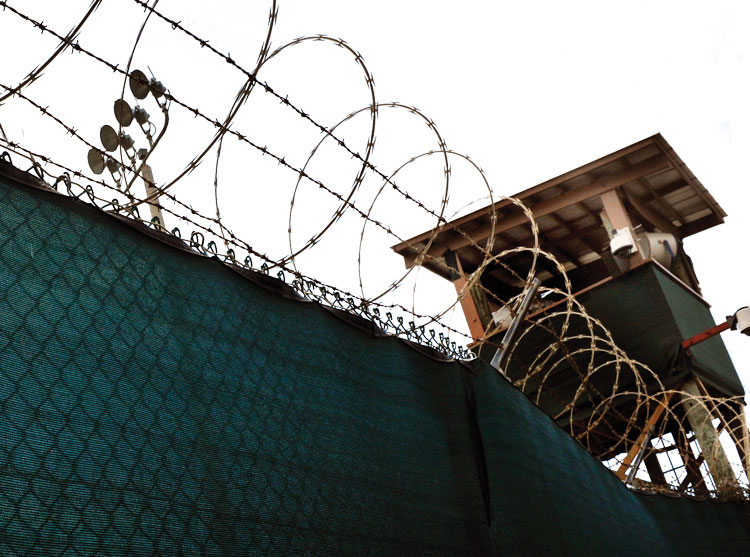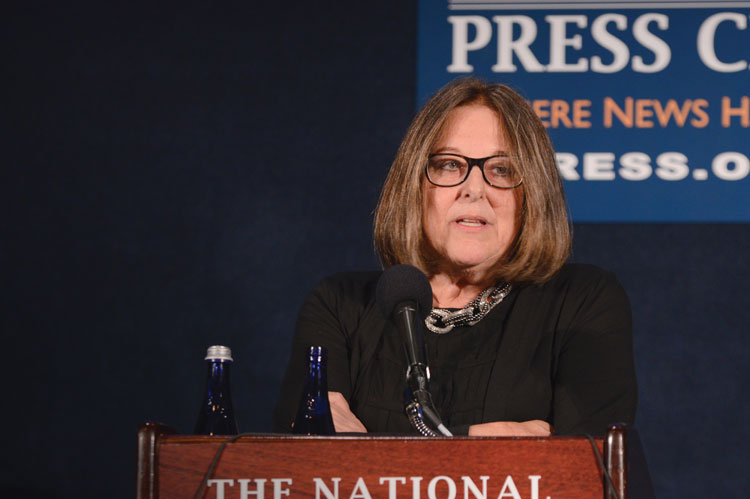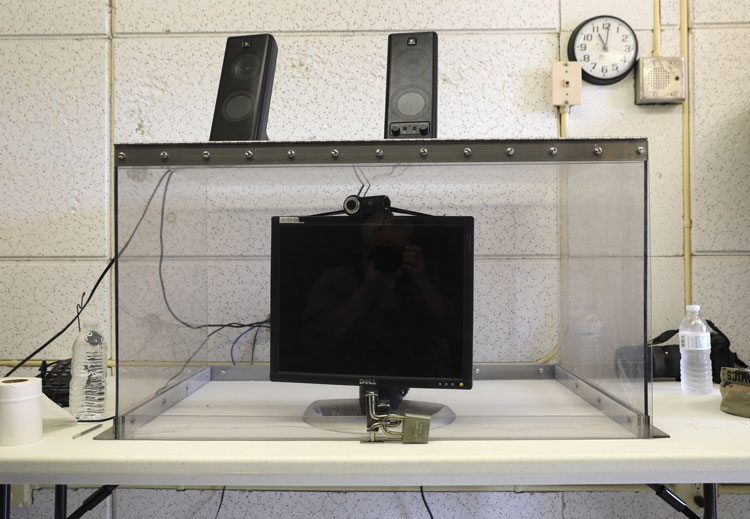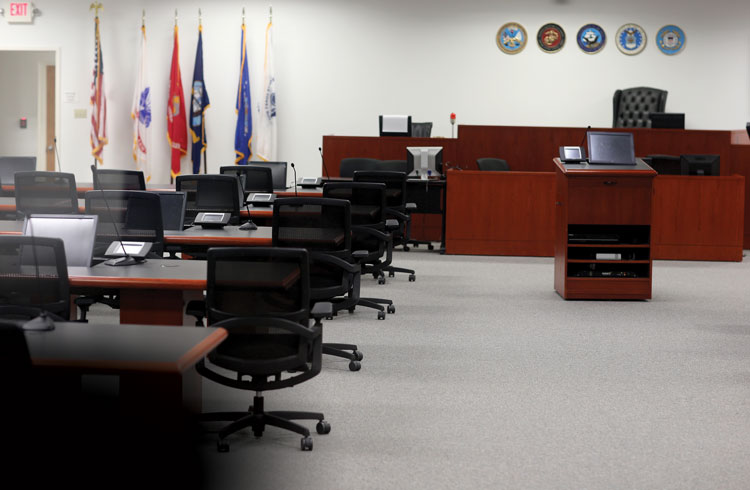Legal ethics questions and accusations of spying have stymied Guantanamo terrorism trial

Photo by Bill O’Leary/The Washington Post via Getty Images.
Ethical Quagmire
With the discovery of the microphone, the defense team had a dilemma: How could they talk to their client about his case without violating attorney-client privilege? The phone was forbidden, they couldn’t trust the confidentiality of written communications, and now the privacy of in-person meetings was suspect.
Kammen got in touch with ethics expert Ellen Yaroshefsky, a professor at Hofstra University Maurice A. Deane School of Law who runs the school’s Monroe H. Freedman Institute for the Study of Legal Ethics. Her opinion ultimately said the attorneys had no choice but to leave the case.

The U.S. Navy destroyer USS Cole. Photo courtesy of U.S. Navy.
“It was a very difficult choice,” says Yaroshefsky. “But ultimately, if you cannot—and they could not—ensure that they could have confidential communications with their client, and they couldn’t even tell their client why they couldn’t do that, then it would be a violation of the rules of professional conduct, and they were required to withdraw.”
That’s when the case ran into a second major issue: Who had the legal authority to excuse the attorneys? Kammen, Spears and Eliades went to Brig. Gen. John Baker, the chief defense counsel for the Guantanamo military commissions. Under one set of rules for the military commissions, the chief may excuse defense lawyers “for other good cause shown on the record.” But the rules of court for the commissions say defense counsel “will not be excused without permission of the military judge.”
Professor Stephen Vladeck of the University of Texas School of Law, who teaches national security law, says there are genuinely plausible arguments for both procedures.
“I absolutely think of all the questions [in al-Nashiri’s case], this is the one that’s perhaps the most closely divided,” says Vladeck, who has written about al-Nashiri’s case on the Just Security and Lawfare blogs. “The text is ambiguous, and there are sort of decent policy arguments for both.”

Miami Herald’s Carol Rosenberg receives a 2018 ABA Silver Gavel Award for her Guantanamo reporting. Photo courtesy of Mitch Higgins/ABA Media Relations.
Spath saw it differently. He ultimately decided that the rule favoring Baker doesn’t indicate who decides whether good cause has been shown, and that he himself, as the military judge, had that authority. Then he found no good cause for the excusal, and ordered Baker to rescind his decision excusing the lawyers. When Baker refused, Spath held a contempt-of-court hearing—at which he didn’t permit Baker to speak—convicted him and confined him to quarters (house arrest) for 21 days.
Within three days, Baker’s sentence was suspended by his “convening authority,” which in military justice terms means someone with authority over the legal proceedings. But to the civilian defense lawyers, this seemed like a preview of what they could expect if they came back to trial.
Another cautionary tale was the experience of Stephen Gill, a former Navy attorney who worked on al-Nashiri’s case at the Pentagon. In 2016, Spath ordered Gill—by then a civilian—to testify about that work. Gill moved to quash the subpoena, and when he got no answer, he didn’t go to Virginia to testify.

A computer monitor allows prisoners to Skype with relatives or attorneys inside the U.S. prison at Guantanamo Bay, Cuba. Photo by John Moore/Getty Images.
According to an affidavit Gill later filed, 15 U.S. marshals and five local police officers showed up at Gill’s Massachusetts home the next day. They arrested him at gunpoint, flew him to Virginia and jailed him overnight pending his testimony, without a lawyer or even his personal effects. Gill filed an affidavit last fall indicating he plans to sue the federal government.
With all of that in mind, Kammen pre-emptively petitioned an Indianapolis federal court for a writ of habeas corpus, arguing that the military commissions had no jurisdiction over him. Within a week, the court agreed to restrain Spath and the U.S. Marshals Service.
Kammen’s co-counsels, Eliades and Spears, took up Spath’s invitation to show good cause as to why they couldn’t come back to Guantanamo. That route caused more problems. Their attorney, Todd C. Toral of Jenner & Block in Los Angeles, says they were improperly subpoenaed: Not only did notice come to him rather than his clients, but it came only about 15 hours before the attorneys were supposed to show up in Virginia. Furthermore, Toral was in London at the time—where it was 10 p.m. when he was served—and he says the government knew it.

The U.S. military courtroom is seen at Camp Justice from behind a glass wall where victims of the 9/11 attack and the media sit to witness the proceedings. Photo by Joe Raedle/Getty Images
Working overnight, his team convinced Spath to order new subpoenas, and Toral attempted to litigate the underlying conflict over who had the authority to dismiss defense lawyers. He doesn’t believe the judge took that seriously.
“Certainly from our perspective, notwithstanding having entered into a briefing schedule on the merits, there wasn’t a serious interest on the part of Judge Spath of actually grappling with the merits of the underlying argument,” says Toral, a former Marine whose practice normally focuses on complex commercial litigation.
This article was published in the November 2018 ABA Journal magazine with the title "A Military Injustice."
Write a letter to the editor, share a story tip or update, or report an error.


